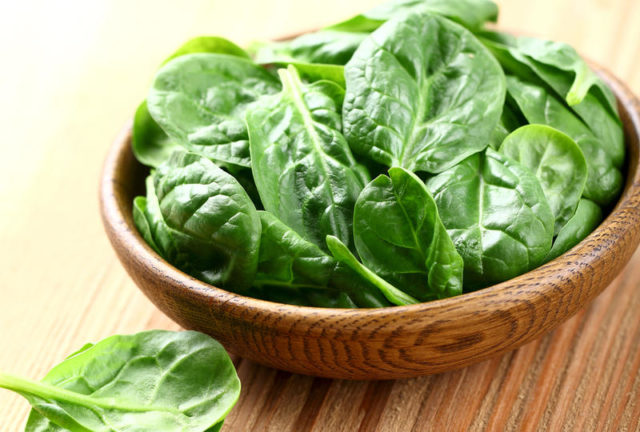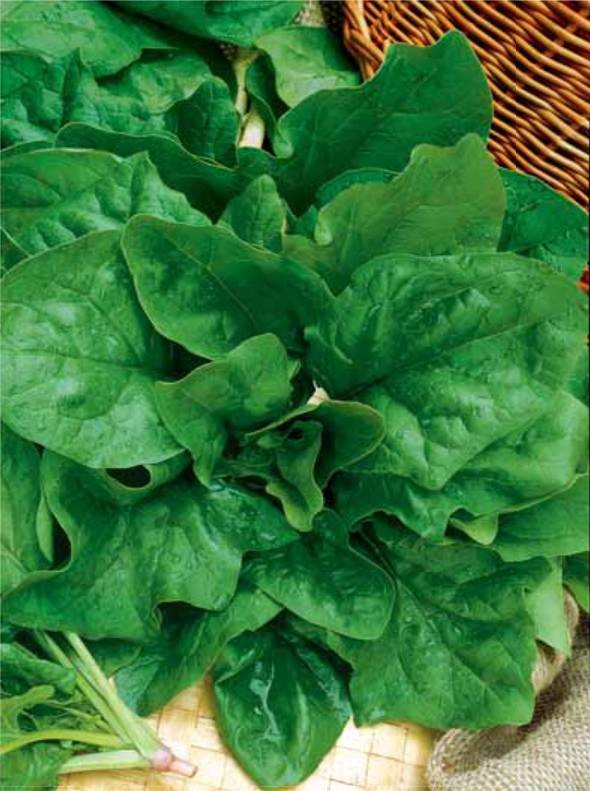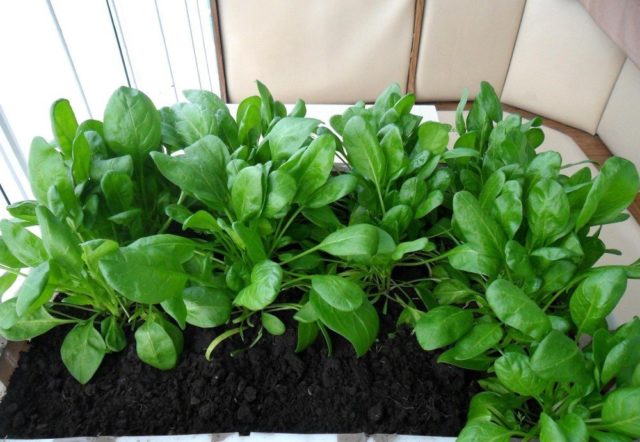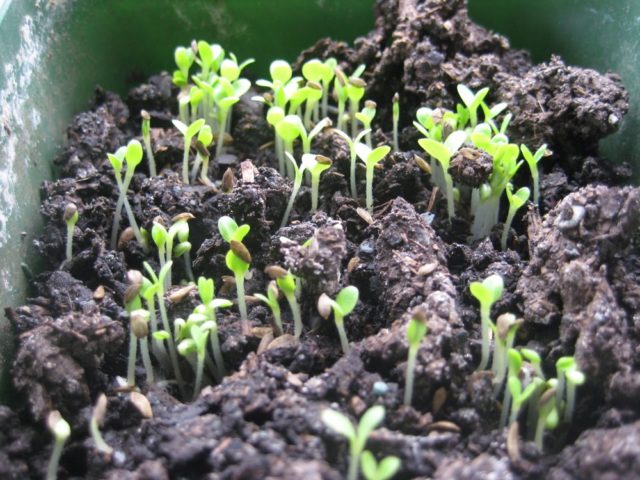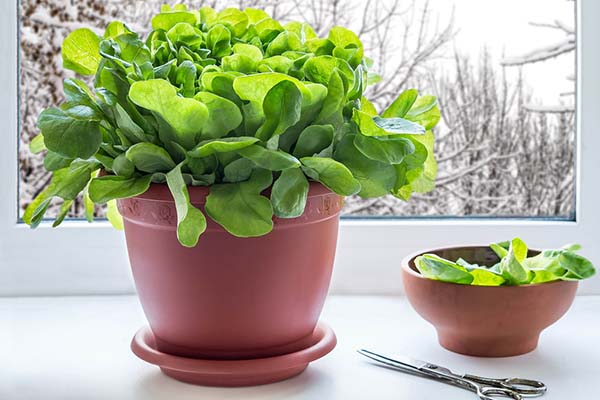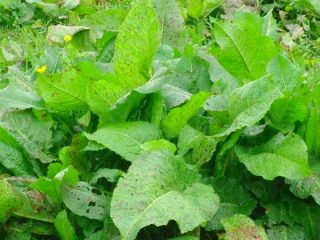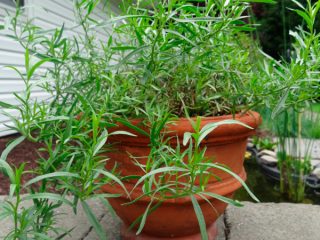Content
- 1 Is it possible to grow spinach on a windowsill in winter
- 2 Which spinach varieties are suitable for growing on a windowsill
- 3 What conditions need to be created
- 4 Rules for growing spinach from seeds on a windowsill in winter
- 5 How to grow spinach in winter on a windowsill in an apartment
- 6 When can the first crop be harvested?
- 7 Conclusion
Lovers of fresh herbs are interested in whether it is possible to grow spinach at home on a windowsill and what varieties are suitable for this. Of course, in the supermarket you can buy greens for every taste, however, grown independently, it will always be tastier. Spinach grows well in an apartment, both on the windowsill and in a glazed loggia, and with proper care throughout the year, you can harvest a full-fledged crop that has grown.
Is it possible to grow spinach on a windowsill in winter
Usually they practice growing greens in the open field or in a greenhouse in the warm season, but spinach on the windowsill in the cold season is not uncommon. If you follow the simple sowing rules and create favorable home conditions for plant growth, greenery on the windowsill can be grown all year round. For this purpose, windows or glazed balconies facing the south side of the house are suitable. Although, if you provide the plant with additional lighting, it is possible to grow greenery on the windowsills of windows facing north.
Which varieties of spinach are suitable for growing on a windowsill
Growing spinach at home is usually practiced from early maturing varieties. The most popular among fans of growing spinach on the windowsill are the following:
- Fat-leaved is an early ripening variety that ripens for 30-35 days. Has a small rosette reaching 17-28 cm in diameter;
- Strawberry - with a mild strawberry aroma, early, fast-growing, does not require special care; its berries, which outwardly resemble raspberries, are also consumed, thanks to this the variety is distinguished by additional decorativeness;
- Virofle is also an early variety and the crop can be harvested as early as 20-25 days. The neat rosette reaches 30 cm in diameter.
In addition to the above, you can grow spinach at home with seeds of the varieties Victoria, Matador, Melody, Krepysh, Gigantic, Stoic, etc.
What conditions need to be created
To grow spinach on a windowsill in winter, it is necessary that the plant does not lack light, feeding and watering. In addition, the soil must be loosened regularly.
It is especially important to pay attention to the temperature regime. The plant is quite cold-resistant, so you should not put it on a windowsill with a battery. The plant feels most comfortable at +15 - 18 ° C, so growing it at home on a glazed balcony is an excellent solution. If there is no balcony, it is better to rearrange the pots to the western and northern windows of the house in winter, and to the southern and southeastern windows in summer. At a temperature of +25 ° C, spinach begins to shoot arrows, which is to the detriment of greenery, since after the appearance of peduncles, the leaves become tough and unsuitable for food. It is best to practice growing spinach on the windowsills of kitchen windows, since the humidity in the kitchen is much higher than in the room. In addition, the kitchen often has to be ventilated, which will provide suitable conditions: spinach feels good in a draft.
Spinach does not tolerate the scorching rays of the sun, therefore, on especially hot days, sowing and growing young greenery at home is not recommended, especially if all windows in the apartment face south. If, nevertheless, the desire to grow the culture of the house is stronger, the bushes should be shaded without fail so that the leaves do not fade. In addition, direct sunlight degrades the palatability of the herbs, making them bitter.
This is also important because spinach under dry conditions accelerates the appearance of arrows, so it is useful to spray the plants with a spray bottle every day or bathe them once a week under the shower.
Rules for growing spinach from seeds on a windowsill in winter
Growing spinach from seeds at home should start with the preparation of planting containers, soil, and planting material.
Preparation of containers and soil
Growing spinach is possible both in ordinary flower pots (ceramic or plastic) and in wooden boxes approximately 20 cm high. It is important that the container has drainage holes. For full development, an adult plant needs 8x8 cm - this is exactly the planting scheme that should be followed when sowing seeds in boxes. If cultivation is planned in pots, a container of at least 2 liters in volume should be selected and planted with 2 - 3 plants in each. Pebbles, broken brick or expanded clay are used as drainage, with which the bottom of the planting container is covered with a layer of 3 cm.
It is not permissible to grow this vegetable crop in acidic soils. Spinach growing at home feels most comfortable in neutral soil. You can buy a ready-made substrate (universal soil for seedlings, without peat, which promotes oxidation) or you can prepare it yourself from the calculation: two parts of garden soil, one part of humus and one part of sand.
The earthen mixture is calcined at a high temperature for an hour to avoid the risk of contamination of the seedlings with fungi and pathogens. For this, the soil composition is poured onto a baking sheet with a layer of 5 cm and sent to the oven. Experts advise subjecting purchased soil to such a procedure as well.
In addition, there are often cases when spinach cultivation at home is practiced in a mixture of coconut fiber and vermicompost, in proportions of 2: 1, respectively. Coconut fiber retains moisture well, while reducing the risk of moisture stagnation.
Seed preparation
In order to grow spinach at home from seeds on a windowsill in winter, for better germination, they must be pre-prepared in order to soften the rather hard seeded shell. Soaking is carried out for 1 - 2 days in warm water at a temperature of 18 - 20 ° C. It is also recommended to hold the inoculum for 30 - 40 minutes before sowing in a weakly concentrated solution of potassium permanganate or potassium permanganate for disinfection purposes. The pelleted seeds are not subjected to this procedure and are not soaked.
Immediately before sowing, the seeds must be removed from the water and dried on a paper towel.
How to plant spinach on a windowsill
Growing spinach from seeds at home is possible at any time of the year. Before sowing, the soil in the planting containers should be well moistened. Below is a step-by-step guide on how to grow spinach on a windowsill in winter for beginners:
- In planting containers filled with drainage and substrate, grooves are made to a depth of 1.5 cm. There should be at least 8 cm between rows;
- Prepared seeds are sown into the grooves made with a step of 8 cm, after which they are sprinkled with soil;
- After that, the soil is moistened with warm water using a spray bottle, and the planting containers are covered with glass or film to create a greenhouse effect;
- The containers are removed in a warm (18 - 20 ° C) dark place;
- After 5 - 6 days, when the first shoots appear, the film or glass is removed, and the boxes are rearranged on the windowsill.
If you adhere exactly to the above recommendations for preparing the soil and seeds, growing spinach at home will not cause difficulties, not even for a beginner in this matter.
If the planting scheme is too dense, it is possible to dive seedlings into separate pots as soon as they have the first 2 - 3 true leaves. Spinach tolerates transplanting well and quickly takes root in a new place. It is important not to damage the root system in the process, therefore, before removing the seedling from the soil, it must be well moistened.
From the reviews of the craftsmen, it follows that growing spinach from seeds on the windowsill is not the only way to get greens at home. Experienced summer residents in the autumn dig up young bushes that have grown in the garden and transplant them into pots for their further growth at home on a balcony or window.
How to grow spinach in winter on a windowsill in an apartment
To grow spinach at home and get a crop of quality no worse than in the open field, you should pay attention to regular watering, feed the plants, and organize lighting.
Watering
Spinach is a moisture-loving plant, therefore watering should be abundant, and the air humidity should be high. With insufficient watering, the greens will begin to wither, which can lead to the death of the entire bush. At the same time, it is important to avoid stagnant water in order to avoid the risk of fungal infection. Young sprouts need to be watered with warm (at least room temperature) water.
In addition, growing a crop at home during the summer requires spraying the plantings from a sprayer once a day (in the early morning or after sunset), and in winter, when the air is excessively dry, twice a day. In order to provide the necessary air humidity on the windowsills, several open containers with water are placed between the boxes or pots. In addition, you can stretch plastic wrap over spinach bushes on a special frame to achieve a greenhouse effect.
Growing spinach at home with insufficient soil or air moisture is fraught with the fact that the greens will be small, tough and coarse. In addition, overdried soil stimulates the ejection of peduncles.
Top dressing
Spinach should be fertilized only once during the entire growing season - at the time of transplanting seedlings to a permanent place with complex fertilizers for flowers. Organic fertilizers (mullein, chicken droppings) are used as top dressing, but with caution, since their excess affects the taste of the leaves.
Mineral, nitrogen-containing fertilizers should be completely avoided, since spinach greens, especially its petioles, tend to actively accumulate nitrites, which makes them unhealthy.
If spinach is grown in fertile, nutritious soil, the plant does not require feeding.
Lighting
Spinach must be provided with at least 10 hours of daylight hours (optimally 12 - 14 hours) in order to get a high yield. Growing plants at home in the summer does not require additional light: natural enough is enough. In this case, the boxes must be regularly turned 180 ° in order to provide the plant with uniform illumination from all sides. Otherwise, they can form one-sided rosettes with abundant greenery, on the one hand, and meager ones, on the other.
This will not be enough for spinach growing at home on the windowsill in winter, therefore, to meet its lighting needs, a fluorescent lamp, spectral LED or phytolamp is installed above the boxes at a height of 60 cm. In cloudy weather, it should be turned on all day. On a normal winter day, it is necessary to supplement the lighting for at least 4 hours, after the intensity of sunlight outside the window decreases.
When can the first crop be harvested?
Since growing spinach at home is recommended from the seeds of early maturing varieties, usually on the 25th - 30th day you can get the first crop. By this time, 6 - 8 leaves are formed on each bush, reaching a height of 8 - 10 cm. In terms of taste, the spinach greens obtained at home on the windowsill are in no way inferior to the plant grown in the open field. And the health benefits are far superior to store-bought spinach. For harvesting, the greens are carefully cut with scissors or the leaf petiole is broken. You cannot pull, otherwise you can pull out the entire bush or damage its root system.
Growing spinach at home on a windowsill or a glassed-in balcony allows you to enjoy fresh, extremely healthy greens even in winter. However, it is important to remember that it is possible to harvest from one bush only within 1.5 - 2.5 months. After that, the plant produces flower stalks, and its further cultivation is impractical, since the leaves become poisonous. Therefore, it is necessary to update the balcony beds every 2 months in order to be able to harvest at home all year round. At the same time, it is not necessary to take a new substrate every time: growing new bushes is permissible in old soil. It will be enough just to apply organic fertilizers every 10 days directly under each plant.
Conclusion
Anyone can grow spinach at home on a windowsill, even being a beginner in this field. After all, all this culture needs is good lighting, regular watering and temperature control. And since spinach is a plant rich in vitamins, minerals and plant proteins, growing it is an opportunity to replenish the body's supply of extraordinarily beneficial substances during the winter months. Therefore, the possible difficulties that may arise in the process of mastering this science are justified by the harvest obtained with one's own hand!
